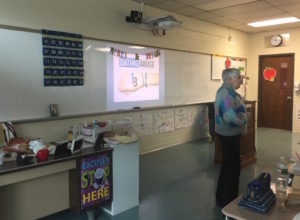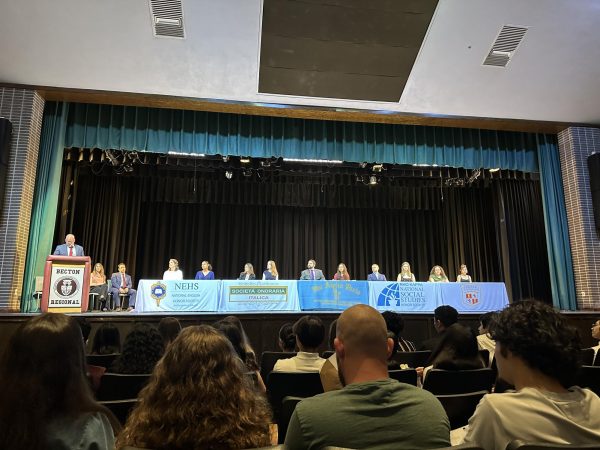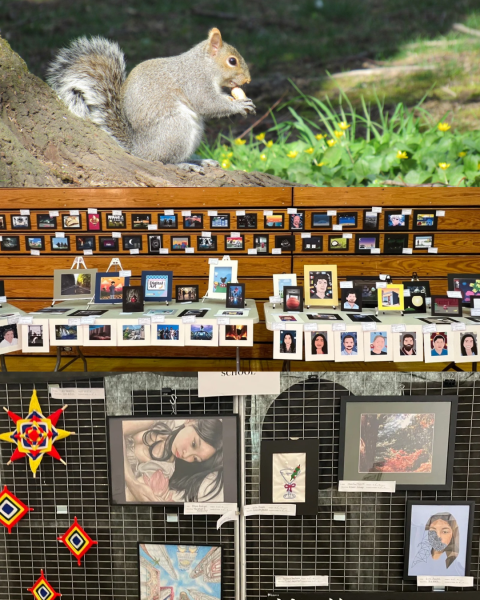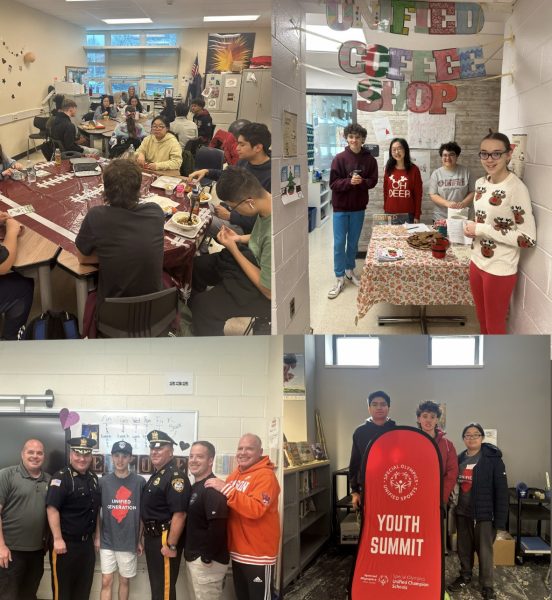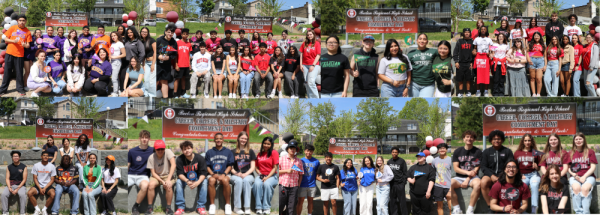Girls Helping Girls members focus on mental health awareness
GHG Club centers meetings around mental & physical wellness during the month of March
An advocate for mental health, Mr. Sean Campbell, educated Becton’s Girls Helping Girls members on topics such as maintaining a healthy mental status and overcoming the stigma that is often associated with mental illness on March 23.
“I want us to think about what is possible when we embrace mental health,” said Mr. Campbell at the start of the meeting.
The guest speaker discussed how members of society are conditioned to think that they should not discuss mental health in the first place and since physical problems are actually visible, they are taken more seriously. He then continued to explain that despite what people may think, one’s mental health correlates with his or her physical health.
The GHG members went on to learn that some circumstances that can cause issues and difficulties are a chaotic childhood, a traumatic experience or everyday stress. In the California Behavioral Risk Factor Survey that was examined at the March meeting, 2,000 adults were asked eight questions to see if adverse childhood experiences were the root cause of mental illnesses, the most common being depression and anxiety. The questions ranged from “Are your parents divorced or separated?” to “Have you ever been sexually abused by someone in your home that was at least five years older than you?” At the minimum, two-thirds of participants have experienced a traumatic childhood event, while one-sixth have experienced four or more. “This population is five times more likely to experience depression,” said Mr. Campbell.
The guest speaker and mental health advocate also went into depth when analyzing the difference between regular stress and toxic stress. Regular stress is the “typical stress” that everyone normally goes through, including having to complete numerous school assignments or coming up against a family problem. But toxic stress is “trauma like when something deeply distressing happens to us that threatens our safety and security,” he explained. Examples are the loss of a family member, seeing something graphic, being a victim of abuse, rape, neglect or experiencing a larger scale catastrophe (hurricanes, floods, etc). These events impact the way someone develops and increases the chance that someone might grow to have a mental illness.
Mr. Campbell stressed another important point as he further explained that the media and society glaze over the fact that men are capable of having mental health problems the same way that women are and that they also need to have the chance to be vulnerable and express their emotions. Men are taught that if they deal with their feelings that they are weak and not masculine, which leads to more men committing suicide. “We have to get men to see that talking about mental health and dealing with your emotions isn’t a sign of weakness, it’s a sign of strength,” he commented.
The speaker’s final words summarized the eight dimensions of wellness. These categories are emotional, environmental, intellectual, physical, occupational, spiritual, social and financial wellness. He commented on how humans have to try to better themselves in these areas of their lives and that it is okay to not have a clue how to start. Since humans are trying to figure out their own purpose in their lives and in the world, they need to channel that energy into being the best versions of themselves that they can be, and in turn, try to build a positive community around themselves.
“Wellness doesn’t just work for us as individuals. We should try to make healthy communities and schools. We’re providing support, and in your case, you’re providing a sisterhood,” he added.
Overall, the GHG members learned how to be better women and people in general, and equally important, how they can uplift themselves as well as others who may be struggling with a mental illness.
“You don’t have to be a counselor to impact someone’s life,” commented the guest speaker.
At the start of the month, Girls Helping Girls members visited the Body Image Boutique in Saddle River, NJ for a day of physical wellness.
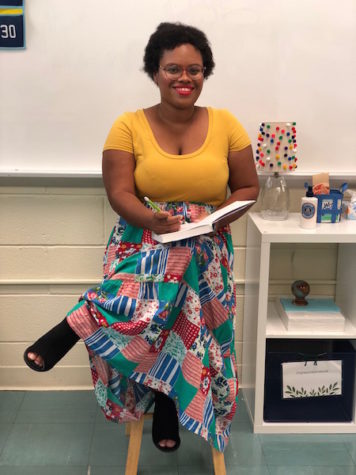
Noelia is thrilled to return to the Cat’s Eye View for her senior year as our editor-in-chief as she completes an independent journalism internship....



